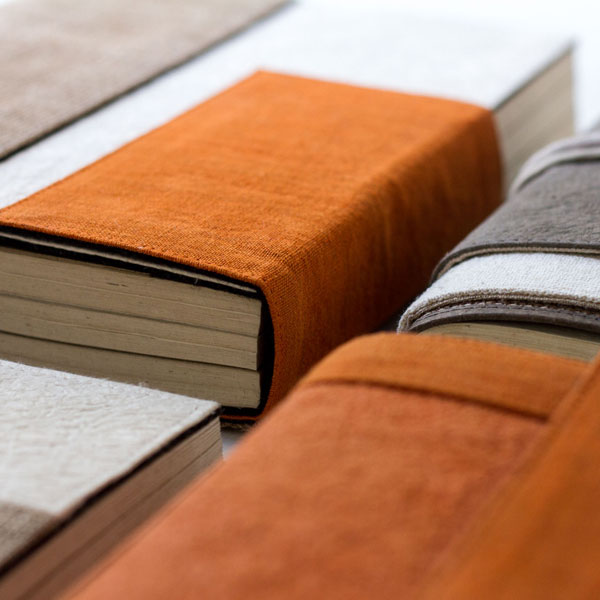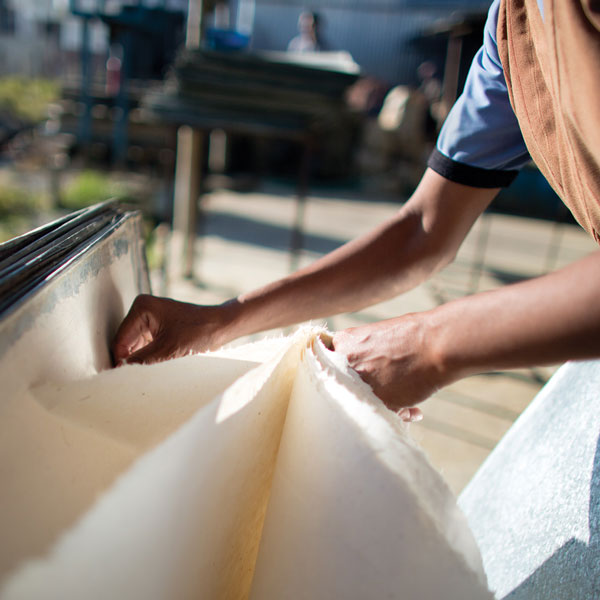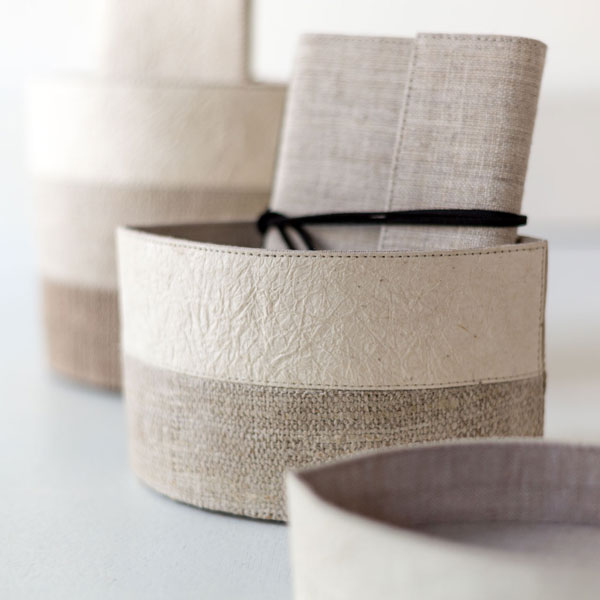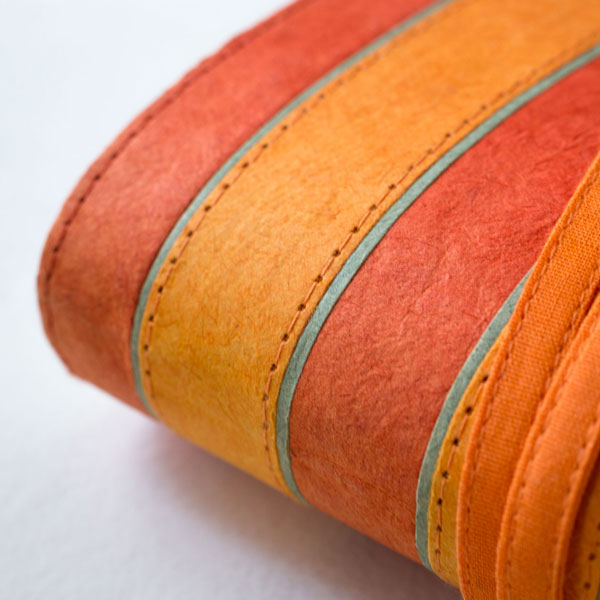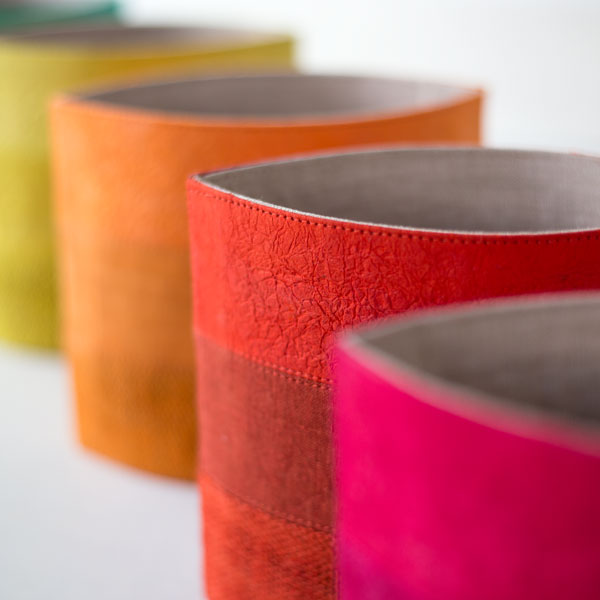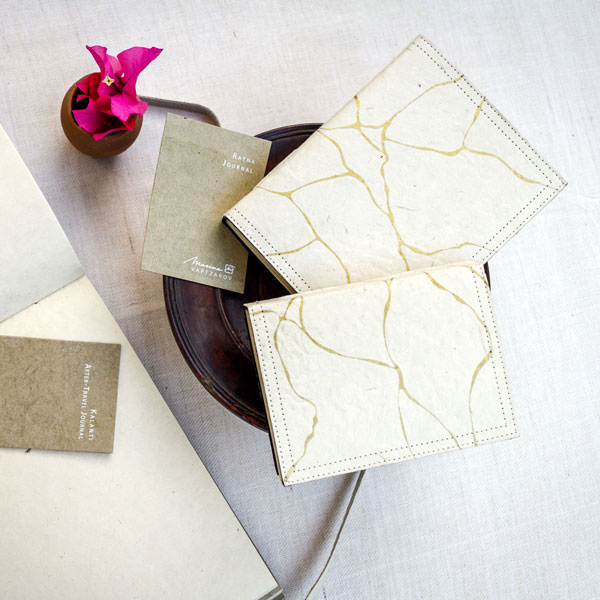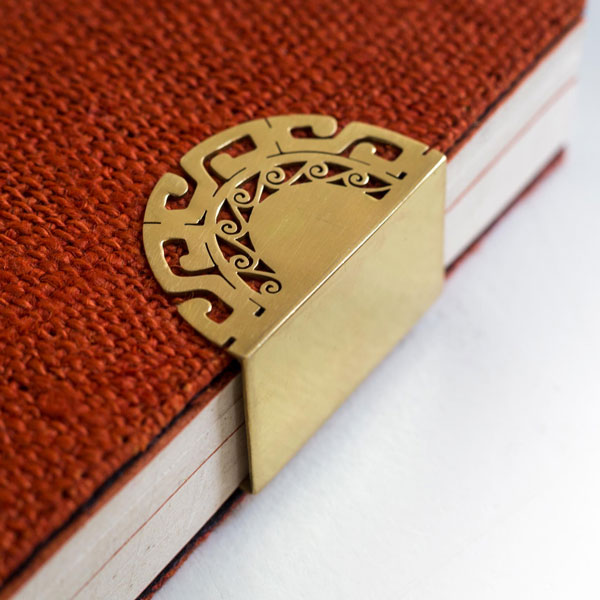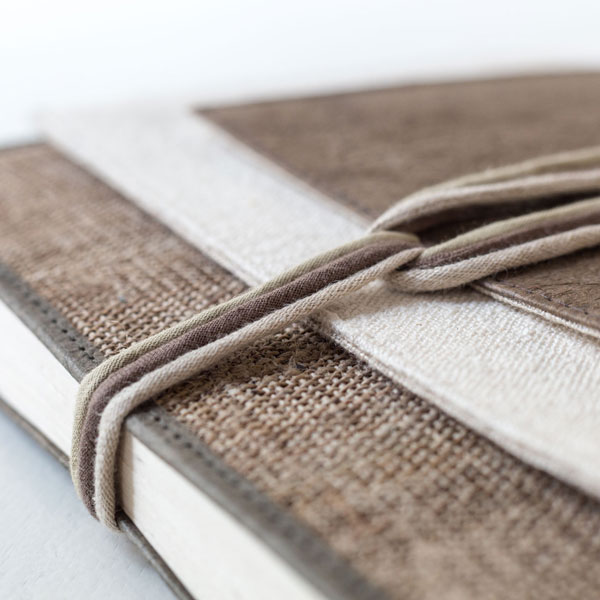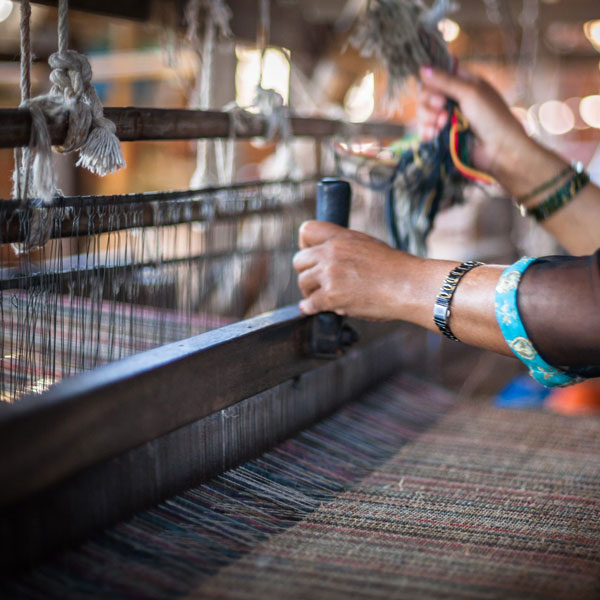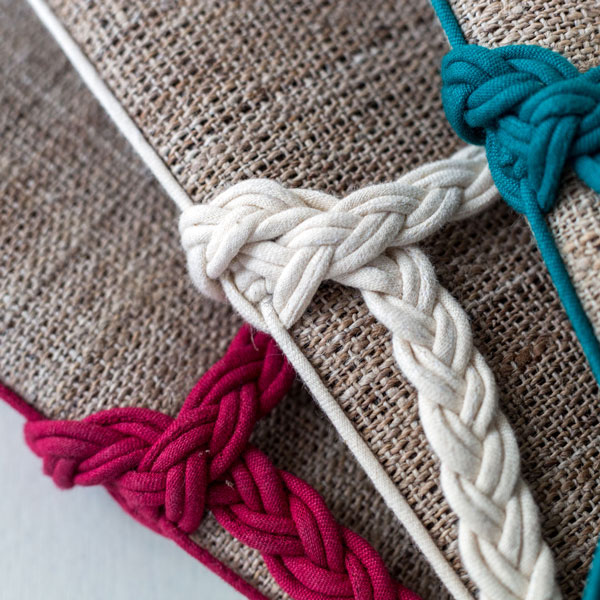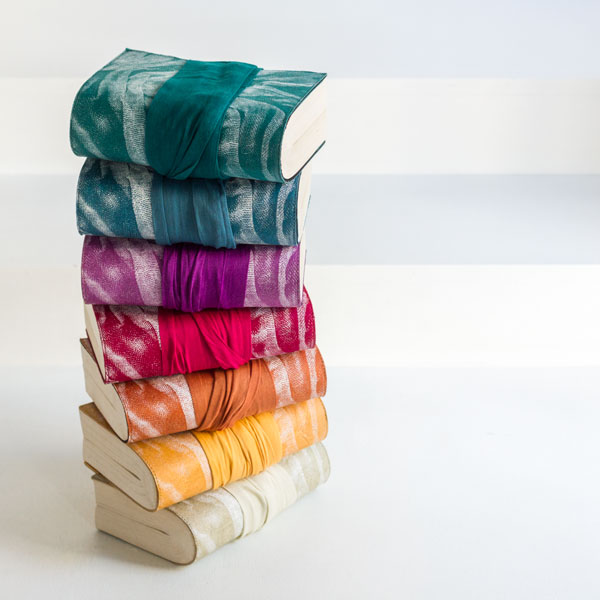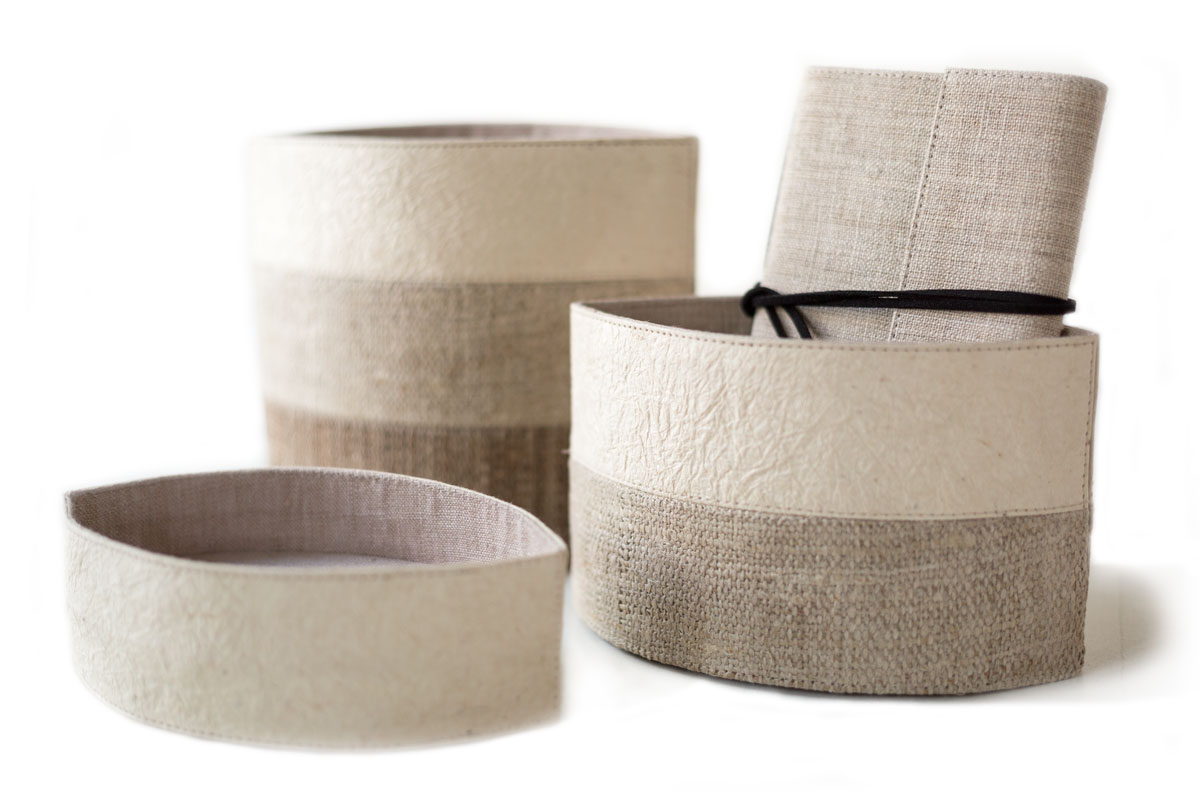
More than a journal, Marina Vaptzarova journals are an experience, a world of infinite textures, shapes and colors that whisper stories of ancient cultures of the world. From tribal ornaments and patterns, to ancestral Himalayan arts of papermaking, weaving and metal work, down to the modern arts and designs, Marina Vaptzarova creations are a beautiful fusion of cultures and aesthetics. Richly colored and boasting the finest handmade raw materials, far more than just paper, Marina Vaptzarova journals are works of art; an aesthetic and sense-experience, a voyage through cultures and centuries.
Far more than just paper, an aesthetic and sense experience, a voyage through cultures and centuries.
In 1976, 19-year-old architecture student Marina Vaptzarova, travels from France to Nepal by road, where she discovers the cultures and traditions that will later inspire her designs. Succumbing to the Himalayan charm she settles in Nepal in 1981, where her long-standing passion for authentic living traditions equips her to recognize the prestige of the ancient artisan traditions still surviving in Nepal. Their highly refined craftsmanship and the self-sufficiency of their methods are quite remarkable. She is especially captivated by the many qualities of their traditional paper, known as Daphne paper - locally called Lokta. Highly esteemed in Himalayan societies for its durability and attractive texture, it has for centuries been used in prayer books, official documents and even traditional medicine. In addition to its appealing texture, it is made of long fibers that endow it with exceptional strength. According to tradition, the fibers are gently peeled from the Daphne bush bark. This rare bush grows only in the Himalayan foothills between 2000 and 3000 meters in altitude. It has the distinctive feature of maturing in only six years and regenerating in consequence of its harvest, without which it would dry up and perish under Nepal’s harsh climate. Its fibers are self-adhesive by nature and therefore do not require any additives to create paper. Natural and entirely handmade, Daphne paper is in fact one of the most sustainable papers in the world.
Marina launched her first Daphne paper designs in 1993 and for over two decades, with unrelenting passion, she has devoted her time to finding new ways in which Nepalese traditions can be applied in contemporary designs. Constantly reviving, merging and coloring traditional raw materials of Nepal in vibrant and unique collections of paper designs. In this way, Marina hopes to help uphold Nepal’s cultural heritage, support its economy and enhance the prestige of its crafts. Marina’s fascination for Daphne paper and endless creativity has led her to develop an innovative material derived from the very same fibers used in Daphne Paper. Baptized Daphley (Daphne Vegetal leather) because of its close resemblance to wrinkled leather, it enjoys a very soft and delightful texture and is a sustainable and attractive alternative for leather journals.
Natural and entirely handmade, Daphne paper is in fact one of the most sustainable papers in the world.
In recent years, Marina Vaptzarova began exploring the Newar’s ancestral art of precious metalwork, adding various carved golden brass elements to her journal designs. The Newars are a native tribe of Kathmandu Valley, famed throughout the Himalayas for their unmatched craftsmanship in the gold - and silversmith trades. In 2013, Marina Vaptzarova introduced the very first of these creations – a lustrous collection of journals, travel diaries and guest-books that combine vegetal leather, Daphne paper, hand-woven textiles and hand-carved brass. Adding to this delectable cuisine of textures, are also the stories of their ethnic inspiration. Marina Vaptzarova’s brass designs have in fact each been inspired from ancient tribal ornaments from around the world and carry with them the fascinating tales of the lands they came from, their symbolism and the people who wore them with great pride.
Jeweled Journals, as they have been named by the brand, have more than a story to share. The Salinar journal for example, boasts a coarse woven hemp cover and an intricately carved brass sliding closure, of which the design was inspired from a golden Nariguera or “nose ornament” from the pre-Columbian Salinar tribe in Peru. The vegetal leather cover of the Chandika journal is wreathed in a pattern borrowed from a Naga tribe in Burma, and adorned with an elegant brass closure, which has been finely hand-chiseled by the Newari silversmiths of Kathmandu valley.
Entirely made by hand, from plant harvest up to the final finishing touches
The brand is known for designs that are far more than simple tools for writing. Transcending the book’s functionality, Marina Vaptzarova creates objects of beauty that will also decorate and accessorize. The Atria Golden guestbook Limited Edition, poised majestically on its large and irregular golden latticework safeguards the messages left by guests in a beautiful and contemporary object that will spectacularly ornate a home, hotel or reception. The Zanzibar Clutch Journal, with its elegant elongation and brass magnetic closure transforms the everyday notebook into a fashionable accessory. It is wreathed in an east African motif, inspired from Tanzanian traditional patterns. To communicate the depth of each product, a complementary story card tells of the traditions, cultures and artisans that are behind the making of each design.
In addition to her creativity and commitment to reviving and preserving cultures and their traditions, Marina Vaptzarova’s priority concern has been sustainability. Entirely made by hand, from plant harvest up to the final finishing touches, Marina Vaptzarova products are an exemplar of sustainable design. Some of the traditional raw materials she works with today include Daphne paper, hand-woven nettle fabric - Allo, hand-woven hemp fabric and felt. All of which are bio-degradable, can be recycled and do not harm the environment.
Allo is hand-woven from the Giant Himalayan Nettle, which grows profusely in most northern parts of Nepal flourishing under the shade of forests. Hemp also grows and regenerates rapidly without any fertilizers and is known as one of the most sustainable plants on earth. As raw materials and products are entirely handmade, the brand’s production has very little to no energy consumption and provides job opportunities for many Nepalese artisans. Without any legal obligation, Marina Vaptzarova has also made it a point to offer and implement social benefits and health insurance to employees and their close family, as well as scholarships for children of employees. To further support Nepal’s future, the company donates 1% of its sales to the Nepal Youth Foundation, who are committed to providing freedom, health, shelter and education to Nepal’s most impoverished children.
It is safe to say that Marina Vaptzarova creations are as beautiful as art, as educational as a museum and as natural as it gets. Marina believes in a return to the fundamentals: ancestral knowledge, the human hand and nature - that with these simple tools it is possible to create in vogue designs, which withhold the authentic quality and beauty of the living.
Marina Vaptzarova’s priority concern is sustainability.

